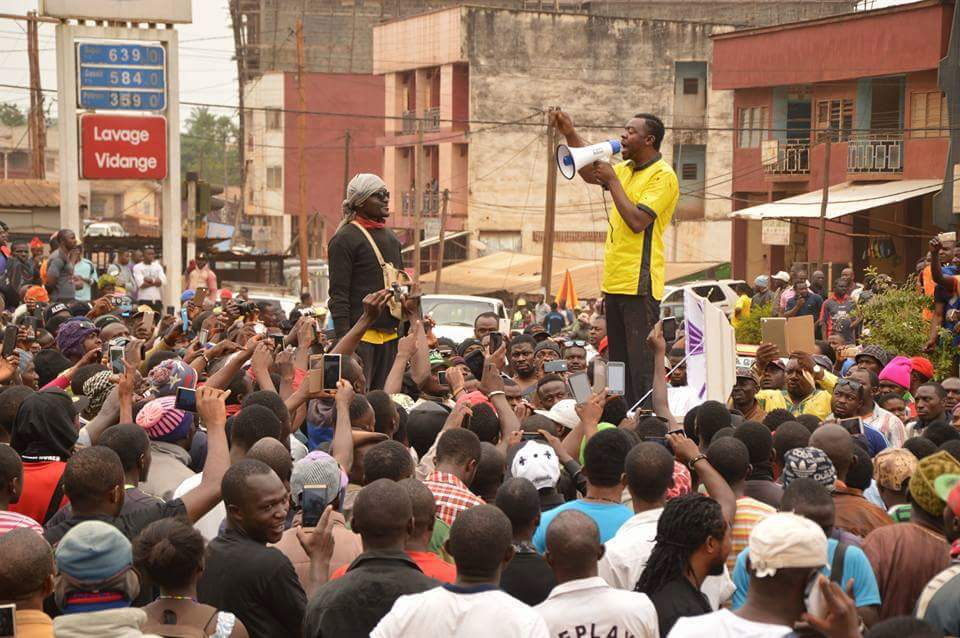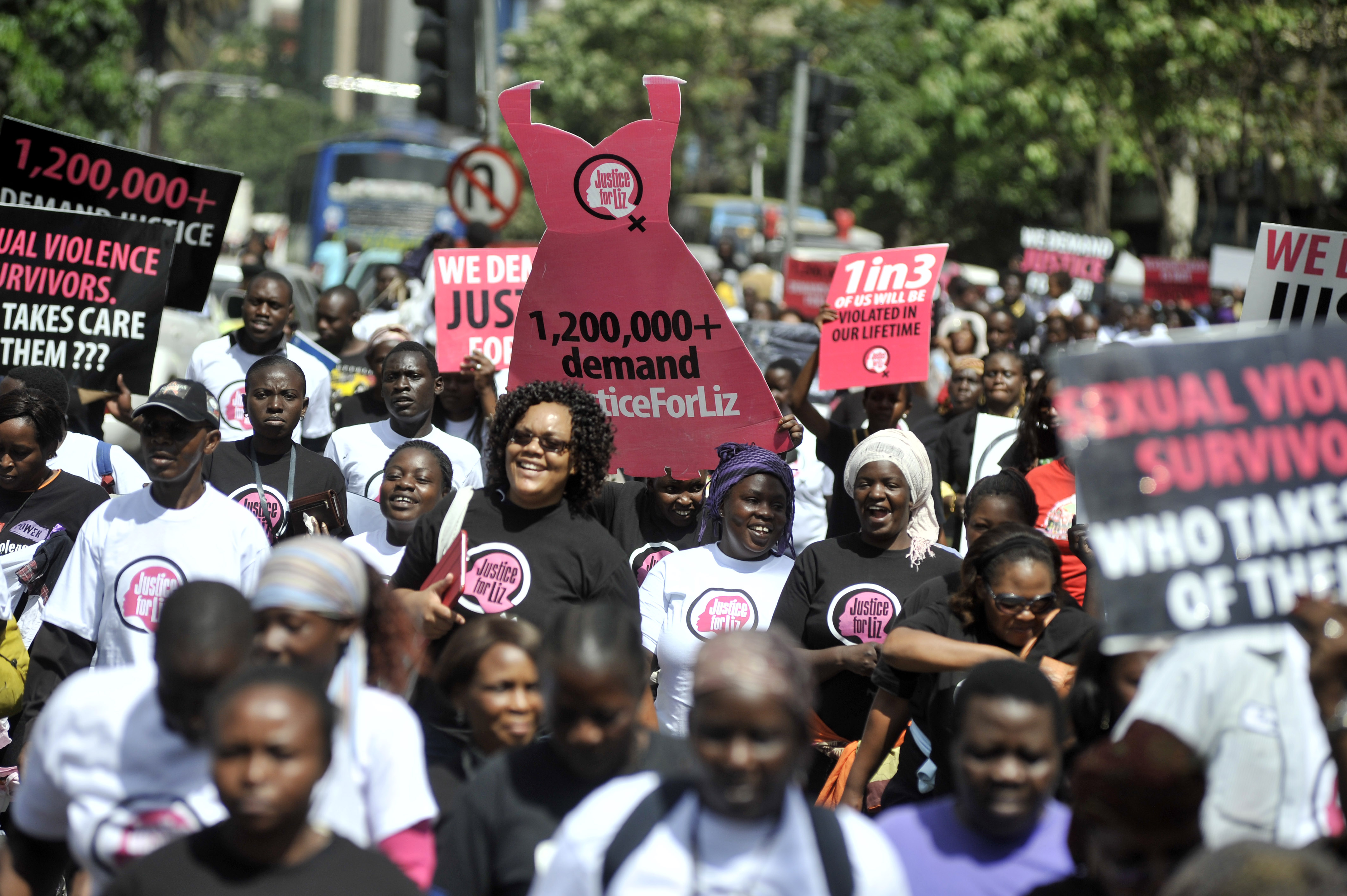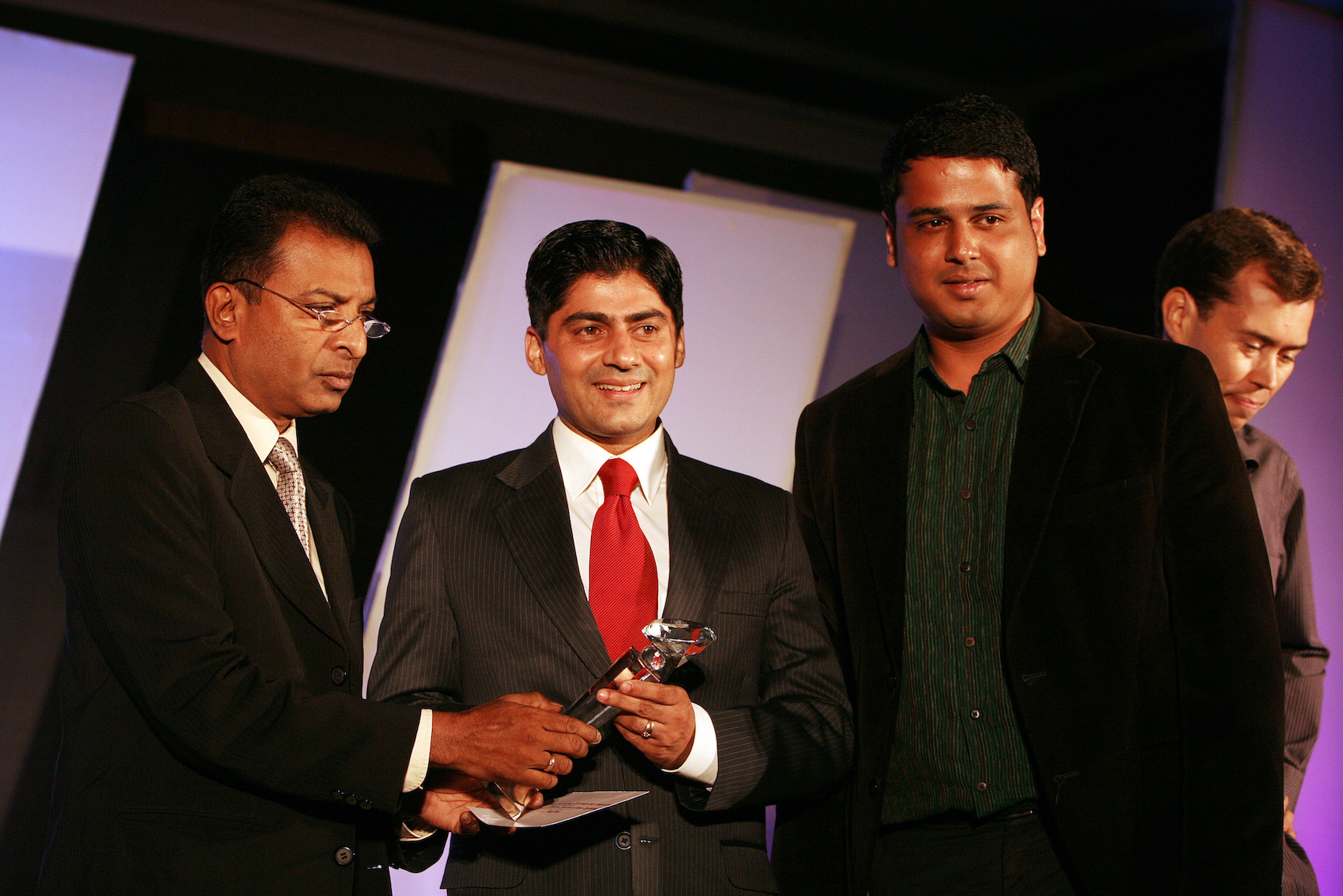"الجواب من عندكم ... والله أعلى وأعلم"، هي عبارة ولازمة ثابتة تتكرر على لسان أغلب المتدخلين عبر الهاتف في أحد برامج المسابقات الإذاعية الصباحية بالمغرب، وهي إحالة في الآن نفسه، على هوية المحطة وإيقاع عملها. فهل ذلك نابع من خصوصية معينة في خطابها، أو أن المسألة جزء من إدراك مسبق من الجمهور بطبيعة التواصل المطلوب وسياقه؟ وهل هناك سمات تميز خطابا إذاعيا ما دون غيره، أم أن الأمر مجرد انعكاس لتمثلنا لمضمون تلك الرسالة بغض النظر عن أشكالها وأوقاتها ومنتجها؟ وما دور المكانة الاعتبارية للمؤسسة التي تشرف على إدارة المؤسسة الإعلامية، خاصة إذا كانت رسمية وذات مرجعية تؤثر في طبيعة التلقي وتوجه الجمهور بشكل غير مباشر لعنوان من العناوين الإعلامية المنافسة؟
إن هذه الأسئلة وأخرى هي مجرد عتبة أولى ومقدمة أولية لدراسة الخطاب الإعلامي الديني، على غرار الدراسات التي تشتغل على حقول ومجالات أخرى: أدبية، وثقافيـة، ومعرفـية، وفـنية.. إلخ، وأعتقد أن تحليله من أهم المفاتيح لإدراك وفهم مُنْتِجِ هذا الخطاب الإعلامي لطبيعة عمله من جهة أولى، وللمستوى الفكري والثقافي للمتلقي من جهة ثانية، بعيدين عن أحكام القيمة والتصنيفات الجاهزة لهذا الخطاب أو لتلك المؤسسة.
بعــيـدا عـن الخبر قـريـبـا مـن المذهب
تتربع إذاعة محمد السادس للقرآن الكريم، منذ تأسيسها سنة 2004، على هرم نسبة الاستماع للإذاعات العمومية والحرة بالمغرب، وذلك تنزيلا من المملكة لمشروع ما يسمى بـ"هـيكلة المجال الديني"، والذي جاء نتيجة الارتدادات السياسية والثقافية التي خلفتها الأحداث "الإرهابية" يوم 16 مايو/أيار 2003، إذ بلغت، مثلا، نسبة الاستماع إليها خلال السنة الماضية (2017) 4،4 مليون مستمع، مما يجعل تتبع هذه القضية مسألة غاية في الأهمية، مركزين في هذا الصدد على ما تنتجه هذه المحطة من خطاب سمعي بصري، يوجه بالأساس لمتلق محدد، وهو الجمهور المغربي المسلم.
وإذا أردنا توصيفا أدق لرسالة هذه الإذاعة، فهي حسب الدكتور عبد الله إِدِلْكوس: "ترسيخ لأطروحة خصوصية الهوية الدينية المغربية المرتكزة على الاختيار المالكي فقهيا، والأشعرية عقديا، وعلى مذهب الجنيد السالك أخلاقيا، ويضاف إليها القراءة القرآنية على حرف ورش عن نافع"، معتبرا ذلك "منسجما ومتكاملا مع باقي المؤسسات الدينية الرسمية، بل خاضعة في مجمل برامجها لتلك المؤسسات، فنحن لا نعدم فيها برامج مدعومة بشكل مباشر من وزارة الأوقاف، وأخرى للمجالس العلمية، وثالثة للرابطة المحمدية لعلماء المغرب". ويفسر الباحث في الفكر الإسلامي المعاصر هذه التبعية بـما تم "الكشف عنه في تقارير كثيرة تبرز التعاطي الكبير للمغاربة مع القنوات الدينية لدول لها اختيارات مذهبية مخالفة للهوية الدينية المحلية، فكانت الرغبة هي التأطير ومحاولة رد الاعتبار للهوية الدينية المغربية وضبط فوضى الفتوى في المملكة".
وعلى المستوى الإعلامي، تشكل هذه المحطة الإذاعية، إضافة إلى قرينتها التلفزية، تجربة إعلامية مغايرة لما هو معتمد في قواعد وأعراف الإنتاج السمعي البصري عموما، سواء من حيث الطاقم البشري الذي يشتغل في إنتاج برامجها، أو من خلال لغة الإرسال اللفظي التي تمنح من الحقل الديني، وبالضبط في شقه الوعظي والإرشادي أكثر منه الفقهي الجدلي، ويبرز هذا الأمر عند الاطلاع على شبكة برامج الإذاعة بشكل عام، إذ نجد أن مادة القرآن، مثلا، إبَّان شهر رمضان لهذه السنة (2018) تمتد لـ435 دقيقة، عبر 24 ساعة من البث المتواصل، أي بنسبة تفوق الثلث، وهو شيء لا يناقض توجه المحطة التي تحمل شعار "إذاعة القرآن الكريم". فهل هذا الأمر امتياز للمؤسسة نفسها ويحسب لها أم هو هروب مغلف بالفشل في سلك خيار الإنتاج الإعلامي الداخلي في قضايا الحقل الديني بالمغرب؟
وبناء على ما ذكر، وعلى توصيف عمل الإذاعة الأولى في المغرب بأنها مؤسسة إعلامية متخصصة في القضايا الدينية، فإن الاشتغال بها يخضع لشروط خاصة تحكمها طبيعة المواضيع التي تهيمن على شبكة البرمجة، وليس على الكفاءة فقط، الشيء الذي يفسر تنوع مرجعيات المنشطين والمقدمين لموادها وبرامجها بين أساتذة جامعيين وعلماء ووعاظ وقراء وأعضاء مجالس علمية.. إلخ، والذين يجب أن يكونوا، من منطلق ما هو متعارف عليه في العمل الإعلامي، ضيوفا وليسوا مقدمين لجل الأعمال الإذاعية التلفزيونية، ليس تبخيسا لعملهم، بل لأن ذلك استثناء لا يجب أن يلغي القاعدة. وبالمقابل نسجل قلة كفاءات خريجي معاهد الإعلام والاتصال، والتي تبحث في الغالب عن فرص للعمل الإعلامي يكون فيه التكوين المستمر موازٍ لمساحة الحرية، وكذا لشروط العطاء المهني المبني على الإبداع بالدرجة الأولى.
فـقيه خلـف الميكروفون ومستمعٌ وَفِـيٌّ
إذا سألت أي صحفي أو منشط إذاعي (مذيع) عن أكثر الأشياء إزعاجا في عمله سيجيبك: إطالة وإطناب المشاركين أثناء الحديث عبر الهاتف، والتشويش التقني الذي يخلقه استعمالهم للمذياع والهاتف في الوقت نفسه، وذكر المتصل للعبارة واللازمة المعروفة وهي أن المتصل ظل لشهور وربما لسنين وهو يتصل بالبرنامج إلى أن نجح في هذه المرة الأخيرة، إضافة إلى مجموعة من المواقف والصور النمطية التي يرسخها المتدخلون الذين انتقلوا من أصدقاءَ إلى زبناء ملوكٍ للميكروفون؛ يَعْرِفُهُم الصحفي دون الحاجة إلى تقديم أنفسهم، وهي مسألة تؤشر على وجود عنصر مهم، وهو الانسجام والتفاعل بين الإذاعي والجمهور، وكذا تباث و"وفاء" قاعدة جماهيرية لتلك المحطة الإذاعية.
لا أزعم هنا أن هذه الخصوصية (الوفاء) تهم الإذاعات الدينية فقط، بل هي عامة لدى كل وسائل الإعلام التقليدية (تلفزيون وإذاعة)، فلكل جمهوره المشترك مع باقي المؤسسات الإعلامية أو الخاص به، اجتماعيا وفكريا وعمريا، لكن بالنسبة لنموذج إذاعة محمد السادس للقرآن الكريم؛ فالأمر يعود إلى الحمولة الرمزية التي يختزلها اسم الإذاعة أولا، ثم شعارها (القرآن الكريم) ثانيا، ثم الهيئة الحكومية المشرفة عليها (وزارة الأوقاف) ثالثا، ناهيك على أن اختيار هذه المحطة بالنسبة للمستمع لا يكون تفضيلا منه على إذاعات أخرى؛ بل لأنها ترافق اختياراته الأخرى وتوازيها، كالغناء، والرياضة، والترفيه، والإخبار فهي تمثل له ملاذا روحيا مقدسا، يحقق له غاية تعبدية بالدرجة الأولى، وهو ما يفسر غلبة المادة القرآنية على شبكة برامج الإذاعة، الشيء الذي يسائل بقاء هذه الأخيرة على رأس الترتيب الذي تصدره هيئات ومؤسسات تتبع ومراقبة البث الإذاعي، أي أن شروط التنافس بينها وبين باقي الإذاعات؛ يشوبه نوع من عدم التكافؤ.
وارتباطا بالأثر الذي تحدثه وسائل الإعلام الديني، سواء المتخـصص في المضمون الديني فقط، أو العام الذي يُفْرِد بعض برامجه للقضايا الدينية؛ نجد أن الإذاعة الرسمية "محمد السادس" تبقى من أكثر الوسائط تجسيدا للطابع المحافظ والمتدين في السلوك الجماعي للمغاربة، ولفهم فئة واسعة من جمهور الإذاعات المسموعة، والتي تركز من أجل تحقيق ذلك على فقرات: قراءة القرآن، والمسابقات، والأمـداح، والدروس الفقهية، وبرامج محو الأمية، والسِّيَر، مما يختبر القدرة على مواجهة المنافسة القادمة من الشرق العربي، والتي تملك رموزا دينية تُستَثمر شعبيتها للمرور أمام الكاميرا أو الجلوس خلف الميكروفون، مع تسجيل أن المغرب عمل على مَذْهَبَة خطاب الإعلام الديني، من أجل توحيد قراءة النصوص الشرعية واستباق تأويلاتها، أملا في تجنب ارتدادات التحولات الثقافية والاجتماعية والسياسية التي تشهدها الدول العربية كما أشرنا سابقا في هذ المقال.
لكـن، هل ذلك التعـدد في أسماء البـرامج يعكس تنوعا في الرؤى والتناول؛ أم أنه تكرار وحشو يكرس النمطية في التقديم، والثبات والجمود والبطء في العمل الإعلامي؟
إن ما قدمته في هذه المقالة لا يعدو أن يكون طرحا أوليا لقراءة وتحليل نموذج من الخطابات الصادرة عن وسائل الإعلام، وليس تقديم إجابات أو أحكام بغرض التبخيس أو الدعاية، مع ما يعتري ذلك من كشف وبسط لبعض قضايا الإعلام السمعي البصري، والتي تواجه طوفان الرقمنة الجارفة.

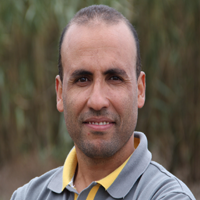
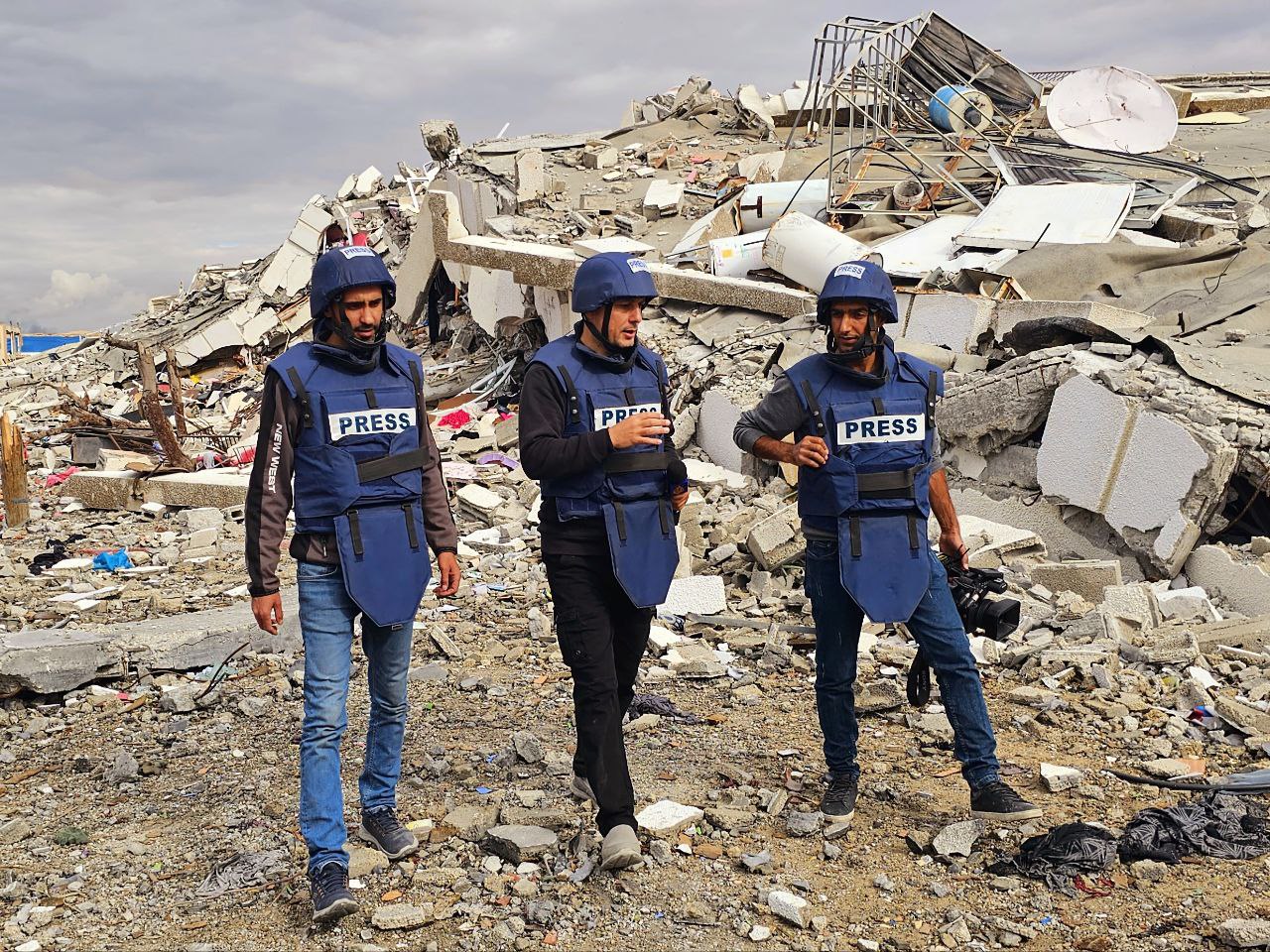




























![A demonstration against Israel's war on Gaza on Paulista Avenue in São Paulo on November 4, 2023, draws attention to the deaths of children while the media focuses on the war against terrorists. [Photo: Lina Bakr]](/sites/default/files/ajr/2024/Picture1.png)

